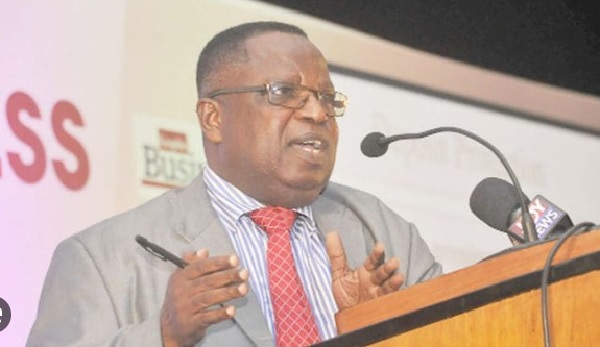
Lending rates won’t change immediately — Banking consultant
The 100 basis point reduction in the benchmark interest rate of the Bank of Ghana (BoG) from 30% to 29% will not immediately reflect on the cost of borrowing, a banking consultant has said.
According to Nana Otuo Acheampong, banks might have to recalibrate to make the reduction reflect on their interest rates, adding that “plus or minus, we should expect some reduction in the interest rate of banks in the next two and half months”.
He said the reduction in the benchmark interest rate, otherwise known as a policy rate, albeit marginal, is a positive signal, which reflected the developments within the economy, particularly the drastic drop in inflation from 53.6% in January last year to 23.2% as at December of the same year.
Many business owners in the country have expressed disappointment at the rate of reduction which they claim was insignificant.
According to them, a one per cent drop in the policy rate was not enough to impact the high cost of borrowing on the market but Nana Otuo Acheampong, who shared some thoughts in an interview with the Daily Graphic on the BoG announcement last Monday, asked for calm, saying “We all need to manage our expectations and see this reduction for now as a signal for better things ahead”.
“I can tell from the analysis of the central bank that the rate will be dropping consistently to reflect the positive developments within the economy,” he added.
Nana Otuo Acheampong said there had never been a drastic rise in the policy rate and, therefore, the rate would come down in the same gradual manner by which it went up particularly when the inflation risk still lingered.
Policy rate
The Monetary Policy Committee (MPC) of the Bank of Ghana (BoG) cut its benchmark interest rate by 100 basis points from 30% to 29% in a bid to spur economic growth.
That was the first time, since 2021, that the central bank had slashed its policy rate based on its observation that inflation will slow further while seeking to boost growth.
The cut in the policy rate, the rate at which the central bank lends to the universal banks, is expected to trigger interest rate cuts on bank loans, which hovers between 32 per cent and 34 per cent on average.
The benchmark interest rate indicator, the 91-day Treasury bill rate, has also declined over the year in response to improvements in macroeconomic conditions.
Inflation for November reduced from 26.4% year-on-year to 23.2% in December, down from the 35.2 recorded in October last year.
At the MPC news conference in Accra last Monday, the Governor of the Bank of Ghana, Dr Ernest Addison, said inflation was expected to ease further to between 13 per cent and 17 per cent by the end of this year.
“These forecasts notwithstanding, there are upside risks to the inflation outlook and there is the need for strict implementation of the 2024 Budget and a tight monetary policy stance to sustain the disinflation process,” the Governor said.
Dr Addison added that there were indications that the current macroeconomic framework being implemented with the support of the IMF Extended Credit Facility programme was yielding positive results.
“The macroeconomic fundamentals have all trended in the right direction,” the Governor said.
The conditions, he said, had fed into sentiments, with improvements in business and consumer confidence.
“Growth, however, remains below potential, requiring policy support, including help from the supply side,” he added.